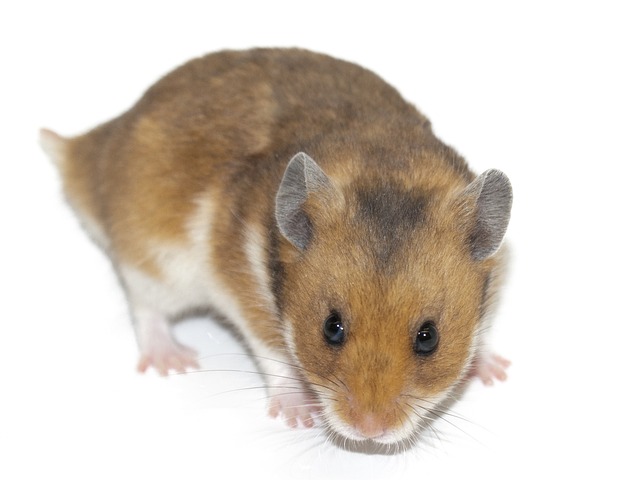Hamsters are popular pets due to their cute and cuddly appearance. As such, their owners are often concerned about their health and well-being. Vinegar is a commonly used household item, including cleaning and cooking. However, some hamster owners may wonder if vinegar can harm their furry friends.
Vinegar is an acidic liquid that can harm hamsters if ingested in large quantities.
The acetic acid in vinegar can cause digestive tract irritation and inflammation, leading to vomiting, diarrhea, and dehydration.
In severe cases, vinegar poisoning can even be fatal. Despite this, many hamster owners use vinegar as a natural cleaning solution for their pets’ cages and accessories.
Overview of Hamsters and Vinegar
The Effects of Vinegar on Hamsters
Hamsters are small, furry creatures that are popular as pets. They are known for their cute appearance, playful behavior, and love for food.
However, not all food is safe for hamsters to eat, and vinegar is one such food item that can harm them.
Vinegar is an acidic liquid that is commonly used in cooking and cleaning. It is made by fermenting alcohol, and the main component of vinegar is acetic acid.
When hamsters consume vinegar, it can cause various health problems, including digestive issues, dehydration, and even death.
Why Vinegar is Harmful to Hamsters
The acidity of vinegar is the main reason it can harm hamsters. Hamsters have a delicate digestive system, and consuming acidic foods can upset their stomach and cause diarrhea. In severe cases, it can also lead to dehydration, which can be life-threatening for these small animals.
Moreover, vinegar can also cause damage to the hamster’s teeth and mouth.
The acid in vinegar can erode the enamel of their teeth, making them more prone to dental problems. It can also cause irritation and inflammation in their mouth, making it difficult to eat and drink.
Hamsters should not be given vinegar or other acidic foods as they can cause serious health problems. As responsible pet owners, we must be aware of the foods that are safe for our furry friends and avoid giving them anything that can harm them.
Symptoms of Vinegar Poisoning in Hamsters
Physical Symptoms
Hamsters that have been exposed to vinegar may exhibit a variety of physical symptoms. These symptoms can range from mild to severe, depending on the amount of vinegar ingested and the duration of exposure. Some of the most common physical symptoms of vinegar poisoning in hamsters include:
- Difficulty breathing
- Rapid heartbeat
- Tremors or seizures
- Loss of coordination
- Nausea and vomiting
- Diarrhea
- Dehydration
- Swelling or inflammation of the mouth, throat, or digestive tract
Behavioral Symptoms
In addition to physical symptoms, hamsters exposed to vinegar may also exhibit behavioral symptoms. These symptoms can be indicative of pain, discomfort, or distress and may include:
- Restlessness or agitation
- Lethargy or weakness
- Loss of appetite
- Hiding or burrowing
- Vocalizations, such as squeaking or whimpering
- Unusual grooming behavior, such as excessive licking or scratching
- Aggression or irritability
It is important to note that these symptoms may not appear immediately after vinegar exposure and may take several hours or days to manifest.
If you suspect your hamster has been exposed to vinegar, seeking veterinary care as soon as possible is essential to prevent further complications.
Treatment for Vinegar Poisoning in Hamsters
Home Remedies
Some home remedies can help alleviate symptoms if a hamster has ingested vinegar. These remedies can be used with veterinary treatment or as a first line of defense if veterinary care is not immediately available.
One effective home remedy is to give the hamster activated charcoal. Activated charcoal can help absorb the vinegar in the hamster’s stomach and prevent it from being absorbed into the bloodstream. This can help reduce the severity of symptoms.
Another home remedy is to give the hamster a small amount of milk or yogurt. The calcium in these dairy products can help neutralize the acidity of the vinegar and reduce symptoms.
Veterinary Treatment
If a hamster has ingested vinegar, seeking veterinary treatment as soon as possible is essential. The veterinarian will be able to assess the severity of the poisoning and provide appropriate treatment.
The veterinarian may administer fluids to the hamster to help flush the vinegar out of its system. They may also administer medications to help alleviate symptoms such as vomiting and diarrhea.
In severe cases, the hamster may need to be hospitalized for observation and treatment. The veterinarian will monitor the hamster’s condition and provide supportive care.
It is important to note that vinegar poisoning can be very serious and even fatal in some cases. If a hamster has ingested vinegar, it is essential to seek veterinary care immediately.
Prevention of Vinegar Poisoning in Hamsters
Alternatives to Vinegar
Hamster owners should avoid using vinegar to clean their pet’s cage or any other area where their hamster may come into contact with the substance. Instead, they can use alternative cleaning products that are safe for hamsters. Some options include:
- Water and mild soap
- Baking soda and water
- Hydrogen peroxide and water
- Vinegar-free cleaning products specifically designed for small animals
Proper Storage of Vinegar Products
If a hamster owner must use vinegar for cleaning, it is essential to store vinegar products properly to prevent accidental exposure.
Vinegar should be stored in a secure location that is out of reach of hamsters. Vinegar products should be appropriately labeled and stored in original containers to avoid confusion with other substances.
If a hamster accidentally ingests vinegar or comes into contact with vinegar products, it is essential to seek veterinary care immediately. Signs of vinegar poisoning in hamsters may include vomiting, diarrhea, lethargy, and difficulty breathing.
In conclusion, hamster owners should take precautions to prevent vinegar poisoning in their pets. Using alternative cleaning products and properly storing vinegar products, hamster owners can help keep their pets safe and healthy.




